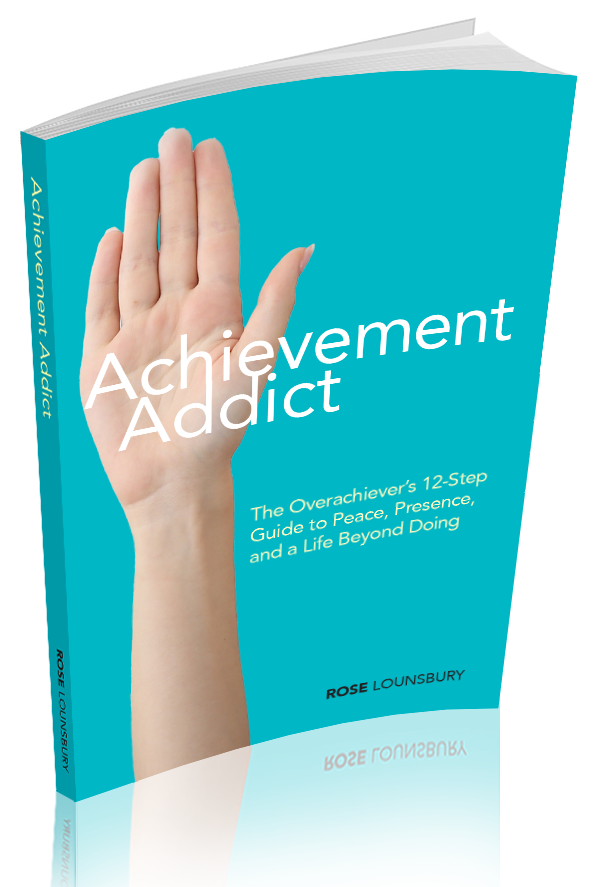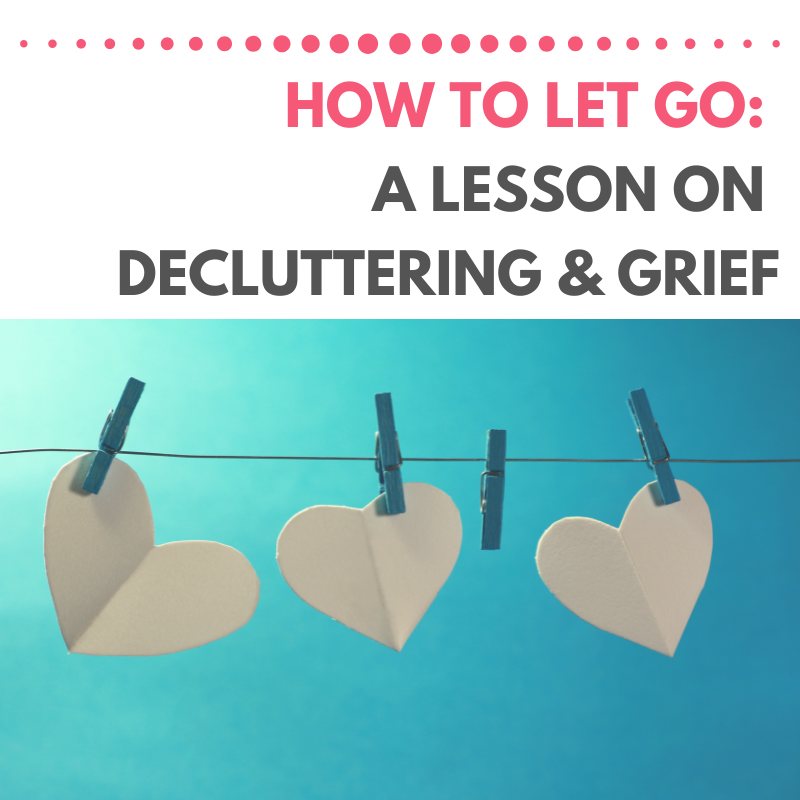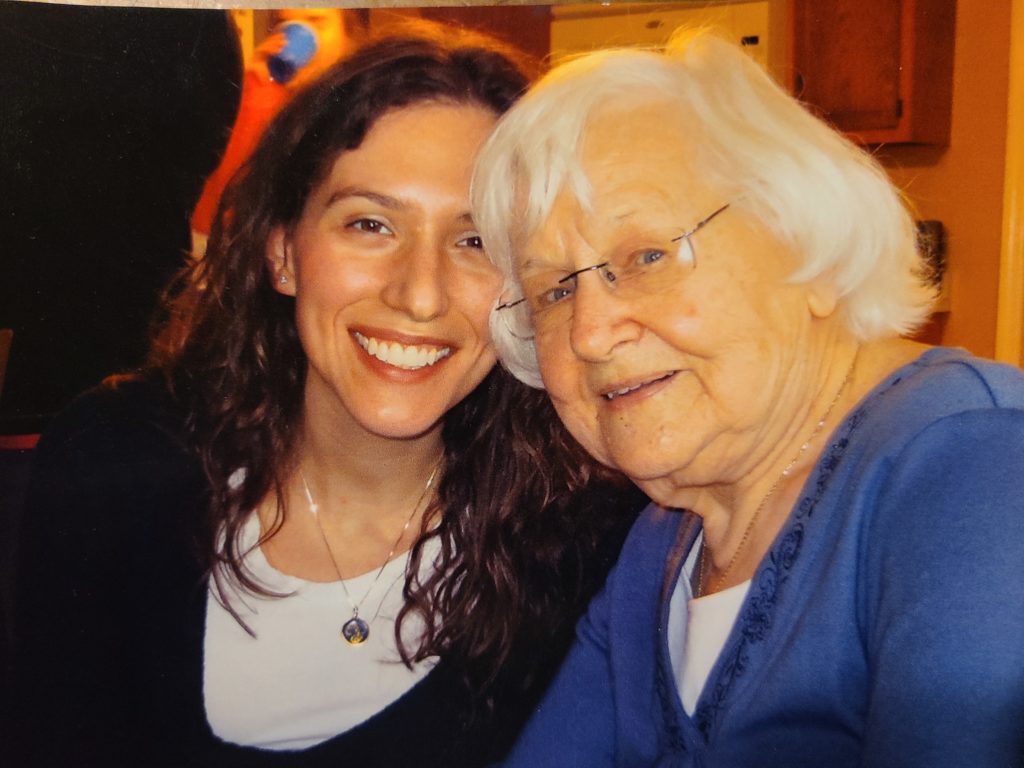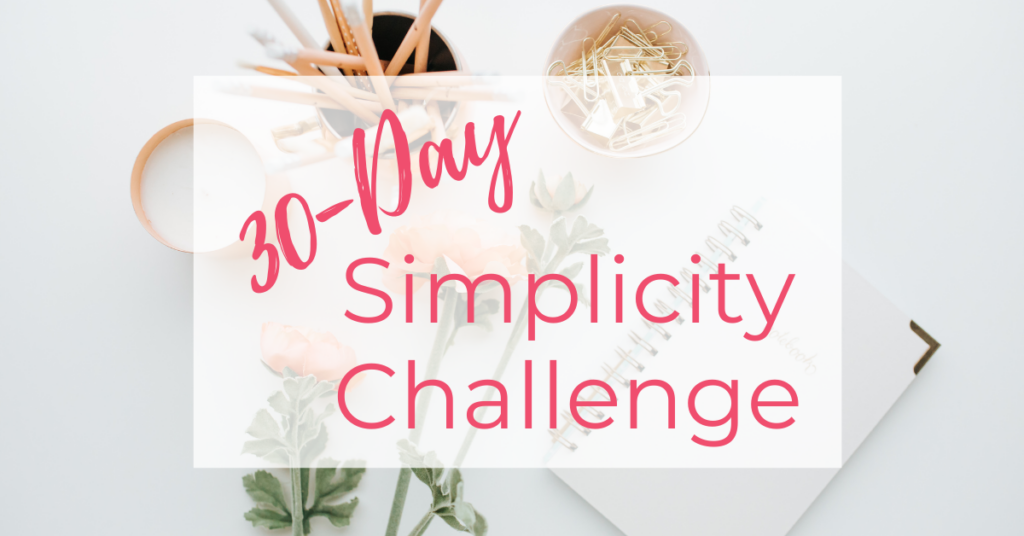Last week I lost my Grandma Cimini. She was 98 years old.
Losing my grandmother put me into grief… and got me thinking about how grief relates to everything else I talk about: simplicity, minimalism, and decluttering.
Grief, like decluttering, is a letting go process.
And grief, like decluttering, is an emotional process.
You might be surprised to hear me say that decluttering is an emotional process. Many of us think of decluttering as simply putting items in trash and donation bags and creating before-and-after photos.
But actually, decluttering is about letting go of our emotional attachments to things. The physical act is then just a natural by-product of that.
In grief, however, it seems to work in reverse. We are forced – unwillingly – to relinquish the physical presence of the person. And then we are left with the much, much harder task… letting go of them emotionally.
This is where I find myself today.
The struggle is in the letting go.
I remember the last couple months of my grandmother’s life, when she was in a nursing facility. Prior to that, she’d lived quite independently in a basement apartment in my aunt’s home.
To see my grandmother in nursing care was very difficult. It brought back traumatic memories from my childhood of visiting my great-grandmother in Alzheimer’s care. I’ve had difficulty visiting senior care facilities ever since.
However, I wanted to visit my grandmother and my three children asked to go, too. But I was frightened because I didn’t want to pass my childhood trauma on to them by becoming emotional during our visit.
So I did what I sometimes do in these situations…
I sat. Quietly. Until I could figure out what was going on.
As I sat, the tears came, and I asked myself… Why? Why are you afraid to visit your grandmother?
The answer rose up… Because I’m worried that if I lose her then I will lose all the best memories of my life.
My best childhood memories are of visiting my Grandma Cimini’s house.
In 2011, I had my middle schoolers do a writing project at Christmas where they created a gift of writing for someone they loved. As an example, I wrote this poem for my grandmother. It captures everything that she meant to me growing up.
Your House
Early Christmas Eve mornings
we woke, cold and blurry,
the small thrill in our stomachs:
we were going to your house,
to Christmas.
Four hours down I-75
we arrived to a gauntlet of hugs
and the aroma of
garlic and tomato sauce.
Before our coats were even off,
the inevitable question,
“Are you hungry?”
We weren’t, but we ate anyway:
anchovy spaghetti sauce, fried cauliflower,
the breaded smelt I never touched,
the endless, endless tray of cookies.
We filled our stomachs
around your kitchen table
beside the avocado green fridge,
then dashed off
for basement hide and seek
or talent shows with
proud, squeaky saxophones.
The upstairs bedrooms were
time capsules of our 1970s aunts and uncles:
bottles of mysterious dark cologne,
a Johnny Bench Day pennant,
a rotary phone,
Catalysts for our young imaginations.
Later, if we were lucky, we could stay up
to watch the adults play Hearts.
We sat beside, pretending to know the rules,
basking in the laughter
of jokes we didn’t understand.
You laughed so hard
you took your glasses off
to wipe the tears.
Christmas morning
brought treasures tucked
inside the stockings you crocheted
for each of us – our names
inching unevenly across the tops in white yarn.
You never worried the small details.
And now I’m grown,
with three kids of my own,
forging new traditions.
But each Christmas
my heart wanders down I-75
to your house,
your love,
a season of joy.
I’m glad that I gifted this poem to my grandmother while she was still alive. (And of course, being my grandma, she made my aunt send copies to all the relatives!)
But back to that quiet moment where I was struggling with visiting her near the end of her life… My fear was that by losing her, I would lose the moments I wrote about in the poem. I thought that when she was gone, those memories would be gone, too. I knew this wasn’t logical, but this was my fear.
So I did what I sometimes do in these situations…
I sat. Quietly. For a longer time.
And as sometimes happens, when I’m very lucky, the answer came to me.
Nothing is ever lost.
Nothing is ever lost. By losing my grandmother I am not losing my memories, I am not losing my childhood, I am not losing any part of myself. I can keep all of that, forever, because what happened in my past exists. It cannot be erased, even if the people, circumstances, and stuff surrounding it go away.
On the flip side, what happened in my past cannot be enhanced by clinging to the people and stuff surrounding it. An entire box of photographs or scrapbooks full of memories or boxes upon boxes of home movies documenting every moment of my life cannot make my childhood any better than it actually was.
It exists outside of all those things.
Our memories and experiences exist outside of the realm of physics.
But hey, as long as we’re talking about it… The scientists would agree with me on this, too.
Nothing is ever lost.
I remember sitting in physics class as a high school senior when we learned the first law of thermodynamics:
Energy can neither be created nor destroyed.
I remember looking around at my fellow 17 and 18-year-olds and thinking… Is anybody else’s mind officially blown by this??
Energy makes up all things (you, me, the device you’re using to read this) and it is constant.
In other words…
What is here has always been here. And will always be here.
It can and will change shape, but it can’t go away.
Mind. Blown. 🤯
The energy in your body used to be in stars and rocks and leaves and dinosaurs. And after you it will be recycled to become other things.
We are infinite.
But how does this relate to grief and decluttering?
I think recognizing that nothing is ever lost (both emotionally and physically) helps us with the hardest part of grief and decluttering…
Letting go.
Letting go does not mean that we lose things. It means that we simply release them to enter the next stage of whatever they’re supposed to be.
This applies to the people we love. And to the stuff we hold onto.
My grandmother has moved on to the next stage of what she is supposed to be. My job is now to release her, to let her go, to keep and cherish the memories, and to know that the most important part of her always lives on: her love.
Her love lives in me.
It lives in my children.
It will live in my great-great-great-great grandchildren who will never know her or me.
Because love, also, is infinite.
The love I’ve received in my life is not just from my grandmother. It’s from her mother, and her mother’s mother, and all the way back through humanity to when humans first began loving and caring for each other.
It endures. And we pass it on.
It cannot be destroyed.
So I don’t need to cling to her or to my stuff.
The best parts of life are not seen. They’re felt.
So I will focus on my feelings. On giving my love to as many people as I possibly can with each moment I am blessed to be here on earth. (I am giving some of it to you today.)
This is how I cherish her.
And this is how I let her go.
To letting go,










